Thursday☕️

Trending:
- On August 6, 2025, United Airlines experienced a widespread system outage due to an unidentified technology issue, prompting the Federal Aviation Administration to issue a ground stop for the airline's mainline flights at multiple U.S. airports. The glitch affected departures, holding aircraft at gates and leading to significant disruptions, including over 20 cancellations and over 400 delays as reported by flight tracking services. Key hubs impacted included Newark, San Francisco, Chicago, Denver, and Houston, though United Express regional flights continued operating normally. The exact type of outage remains unknown, including whether it involves a cyberattack or not, and the airline emphasized that safety remains its top priority while teams work to address the problem.
- As of the evening of August 6, 2025, the ground stop remained in effect, with United anticipating further delays extending into the night and advising passengers to check flight statuses for updates. The company issued an apology via social media, stating efforts are underway to resolve the outage as quickly as possible and assist affected customers. Under U.S. regulations, passengers facing cancellations or significant delays may be eligible for refunds or accommodations, and no safety incidents or injuries have been reported in connection with the event. This outage follows similar technical disruptions in the aviation industry but appears isolated to United Airlines.
Economics & Markets:
- Yesterday’s U.S. stock market:
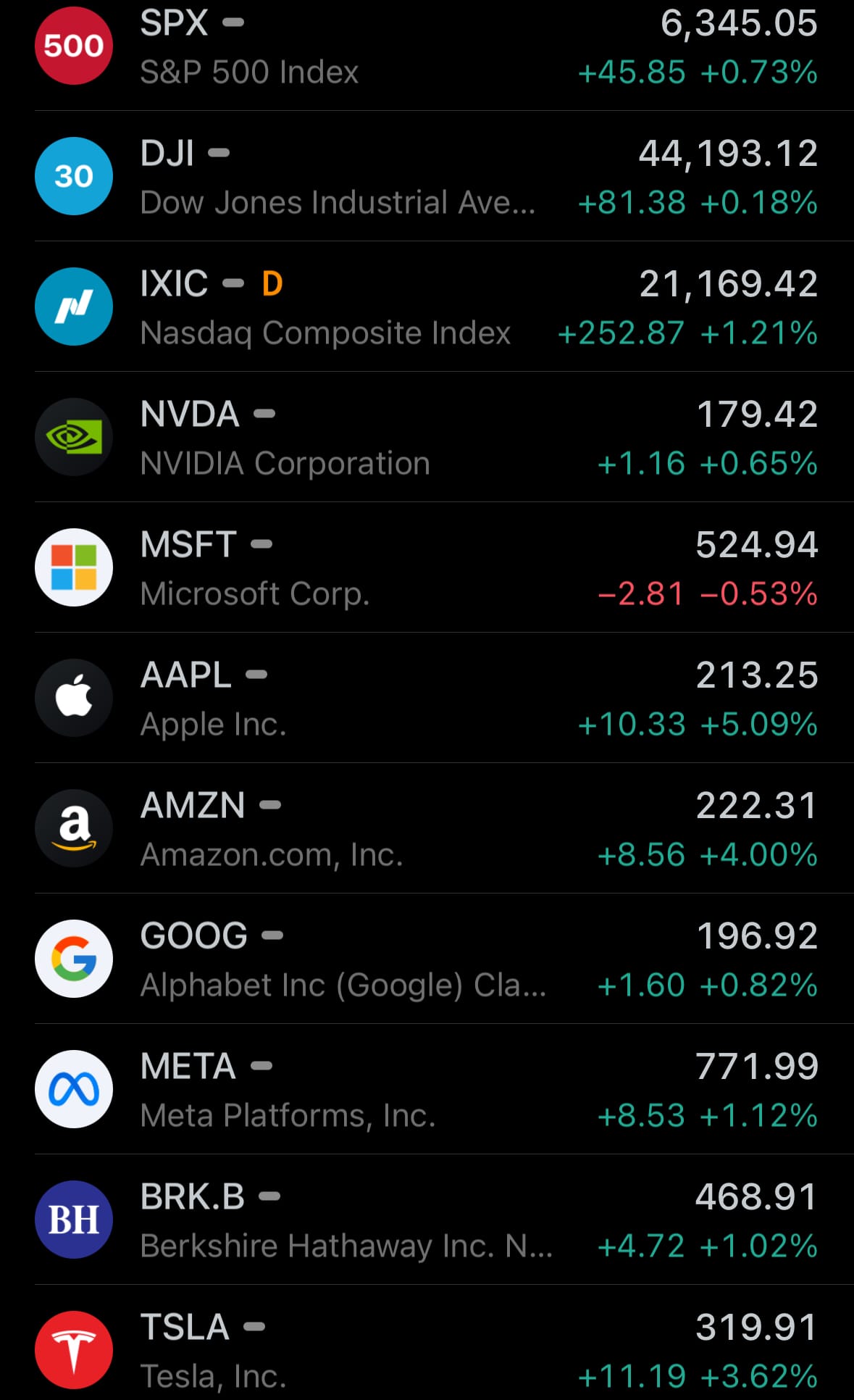
- Yesterday’s commodity market:
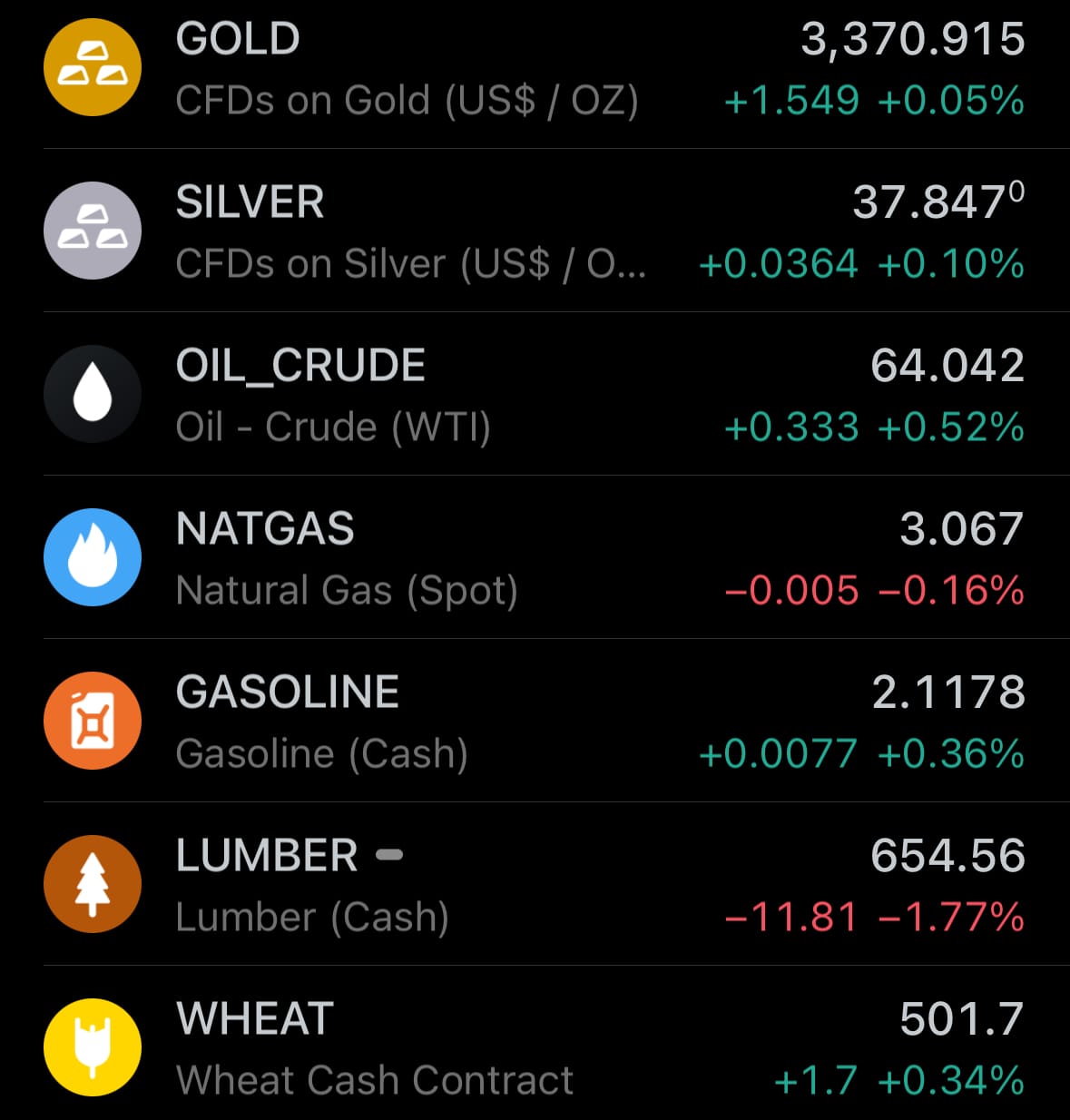
- Yesterday’s crypto market:
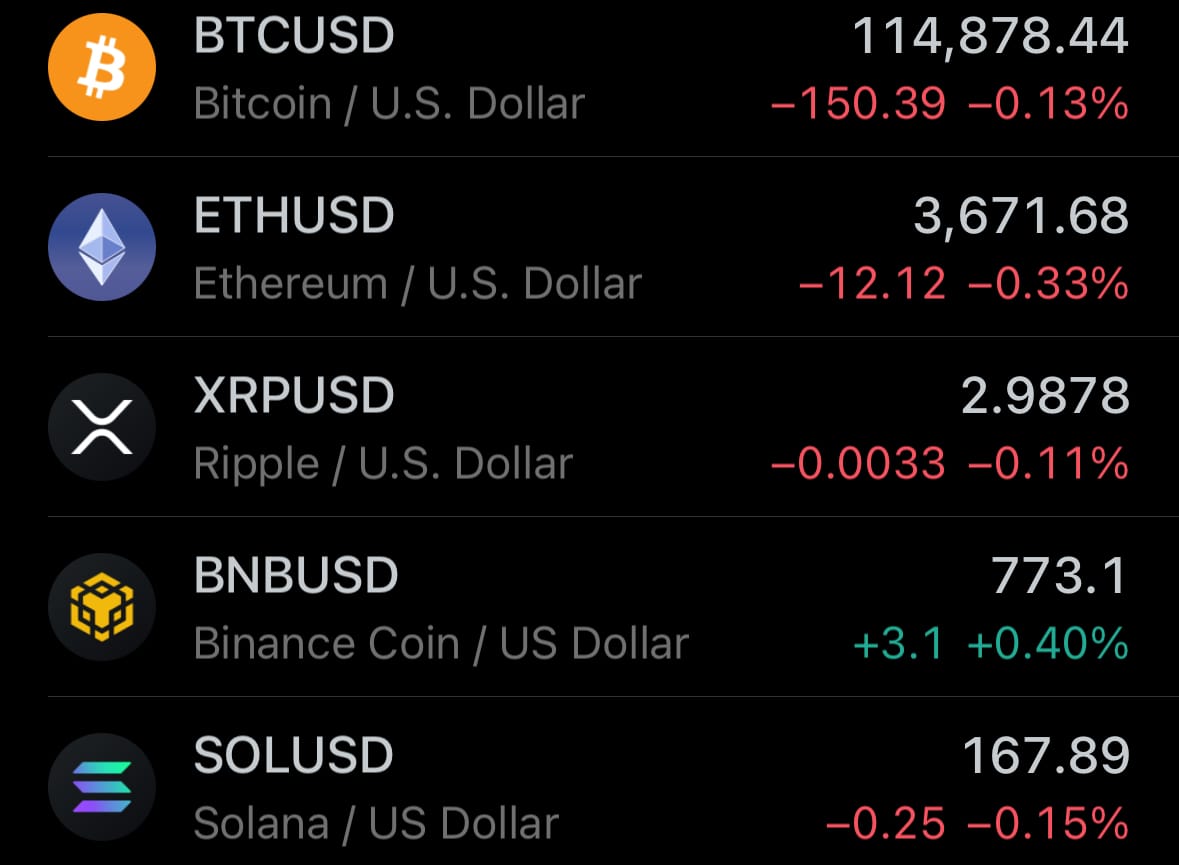
Geopolitics & Military Activity:
- On August 6, 2025, the Israeli Air Force conducted a series of airstrikes targeting Hezbollah positions in southern Lebanon, including weapon depots, rocket launchers, and sites storing construction vehicles allegedly used for rebuilding terrorist infrastructure, as stated by the Israeli Defense Forces. The strikes occurred amid ongoing tensions despite a ceasefire agreement from November of the previous year, with Israel accusing Hezbollah of violating Israel-Lebanon agreements by stockpiling weapons in the region and using Lebanese civilians as human shields, thereby endangering local populations. Reports indicate that the attacks resulted in at least one civilian death—and injuries to three others in southern areas, while no Israeli casualties were reported from these specific incidents. Villages in southern Lebanon, such as Mahmoudia and Jebaa, were among the affected locations, with footage showing significant explosions and fires.
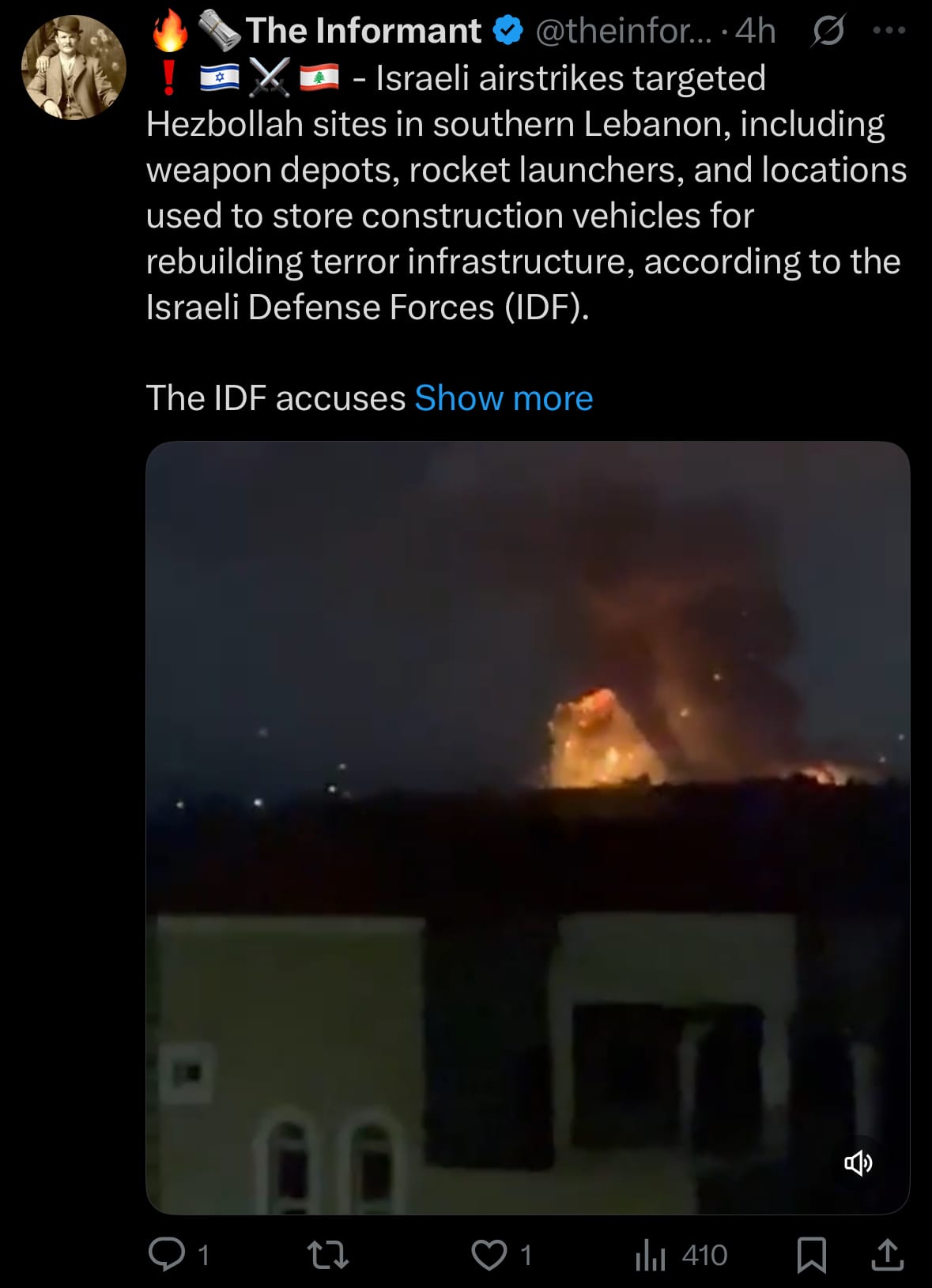
- The airstrikes represent part of Israel's near-daily operations against Hezbollah since the ceasefire, aimed at preventing the group's military recovery, though Hezbollah has not immediately responded militarily to this wave. Hezbollah's leadership has rejected recent calls from the Lebanese government to disarm by the end of 2025, describing the proposal as a major mistake influenced by U.S. pressure, and has threatened to resume missile attacks if Israel escalates further. The Lebanese cabinet is preparing a plan for the army to implement United Nations Resolution 1701, which calls for disarmament south of the Litani River, but Hezbollah insists discussions on weapons will only occur after Israel withdraws from disputed hills in Lebanon. International observers note that Israel has committed thousands of ceasefire violations, while investigations into the strikes' full impact continue amid calls for de-escalation from both sides.
Environment & Weather:
- On August 6, 2025, a large wildfire is ongoing in southern France's Aude region, having started on August 5 and burned more than 16,000 hectares (approximately 39,536 acres), an area larger than Paris. This marks the largest fire in France this summer and the most extensive since 1949. The fire has been fueled by drought, high temperatures, and strong winds, spreading through the Corbières hills near the Spanish border. It has destroyed at least 25 homes, vineyards, and farms, and led to the evacuation of residents, tourists, and campers from villages including Lagrasse, Fabrezan, and Saint-Laurent-de-la-Cabrerisse. One death has been reported: a woman in her sixties who chose not to evacuate her home in Saint-Laurent-de-la-Cabrerisse, believing it was safe. Additionally, between 9 and 13 people, including firefighters, have been injured, with one in critical condition due to severe burns, and at least one person remains missing.

- The fire is not yet contained, with over 2,150 firefighters and multiple water-bombing aircraft engaged in efforts to control it, amid conditions expected to remain challenging for several days. French Prime Minister François Bayrou visited the area and described the event as an unprecedented catastrophe linked to climate change and drought, while President Emmanuel Macron has deployed national resources and advised caution. Authorities have established 17 temporary shelters, closed roads, and instructed residents not to return home, as the fire continues to threaten additional areas despite containment attempts. Investigations into the cause are in progress, and the fire has burned more land in 24 hours than the typical annual wildfire total for France.

Statistic:
- Largest public banking companies by market capitalization:
- 🇺🇸 JPMorgan Chase: $801.11B
- 🇨🇳 ICBC: $359.57B
- 🇺🇸 Bank of America: $336.42B
- 🇨🇳 Agricultural Bank of China: $311.77B
- 🇨🇳 China Construction Bank: $273.37B
- 🇺🇸 Wells Fargo: $249.93B
- 🇨🇳 Bank of China: $236.69B
- 🇺🇸 Morgan Stanley: $225.56B
- 🇺🇸 Goldman Sachs: $219.39B
- 🇬🇧 HSBC: $218.01B
- 🇦🇺 Commonwealth Bank: $194.79B
- 🇮🇳 HDFC Bank: $194.07B
- 🇨🇦 Royal Bank Of Canada: $186.49B
- 🇺🇸 Charles Schwab: $175.71B
- 🇺🇸 Citigroup: $169.78B
- 🇯🇵 Mitsubishi UFJ Financial: $161.02B
- 🇨🇳 CM Bank: $160.01B
- 🇺🇸 Capital One: $136.14B
- 🇪🇸 Santander: $132.02B
- 🇨🇦 Toronto Dominion Bank: $126.53B
- 🇨🇭 UBS: $120.55B
- 🇮🇳 ICICI Bank: $117.82B
- 🇮🇹 UniCredit: $116.95B
- 🇸🇬 DBS Group: $108.11B
- 🇮🇹 Intesa Sanpaolo: $106.46B
History:
- An Application Programming Interface (API) is a set of defined rules and protocols that allows software applications to communicate with each other. APIs serve as bridges between different systems, enabling developers to access specific functions, services, or data without needing to understand how the other system is built internally. This abstraction simplifies development, promotes reusability, and allows applications to scale more efficiently. For example, APIs can be used to fetch weather data, process payments, send messages, or access a machine learning model. By standardizing how systems interact, APIs support modular software design and enable integration across different platforms and devices.
- The concept of APIs has evolved significantly since the early days of computing. In the 1960s and 70s, APIs were primarily low-level interfaces tied closely to operating systems, such as system calls that allowed programs to interact with hardware. In the 1980s and 90s, APIs became more accessible to developers through software libraries and development kits, especially in environments like Windows and Java. The early 2000s introduced web APIs, which used internet protocols like HTTP and formats such as XML and JSON to enable remote interactions between systems. This made it easier for services to integrate across the web, leading to the widespread use of RESTful APIs. In recent years, APIs have expanded further through cloud computing and artificial intelligence. Cloud APIs allow developers to manage infrastructure and services remotely, while AI APIs provide access to advanced capabilities such as natural language processing and image recognition. Today, APIs are central to software development, powering everything from simple app features to complex, data-driven platforms.
Image of the day:

Thanks for reading!
Earth is complicated, we make it simple.
Click image to view the Earth Intelligence System:
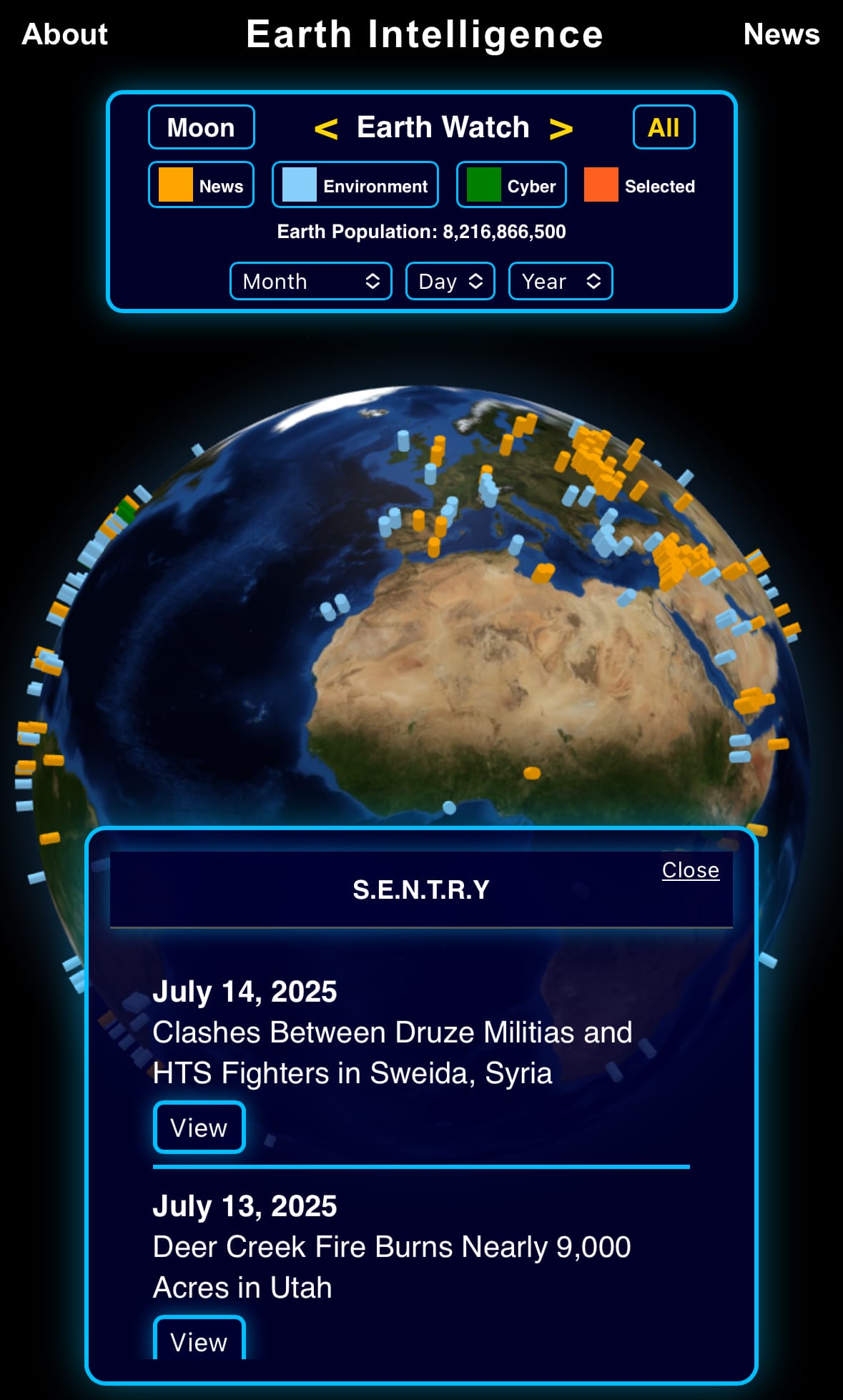


Support/Suggestions Email:
earthintelligence@earthintel.news




